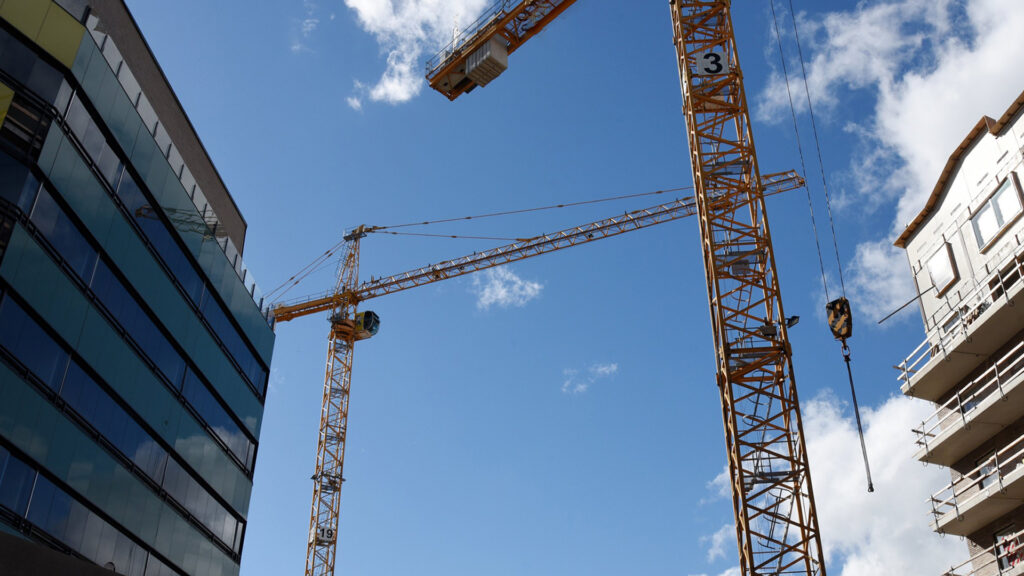The Construction Act, which will enter into force at the beginning of next year, will bring us several changes affecting different things. One of these is the demonstration of qualifications for building supervision. The method of submitting work and study certificates to the building inspection, which has become familiar until today, ends. In the future, they will be sent to the authorized institution. The qualification classification also changes, when the current demanding category is divided into two: demanding and very demanding.

No major changes to qualification classifications
Education and experience requirements change only for the regular class; in the future, you can become the responsible designer or foreman of a small house directly from school, when the experience requirement is completely removed. Whether this is a good or a bad thing depends on the individual case.
A new, very demanding class some of the builders are already familiar with the demanding+ rating in the capital region. In addition to the four years of work experience required for the demanding category, the designer or foreman must have two years of work experience in their own tasks in the demanding category in order to be able to enter the very demanding category. The education requirement remains at the level of a demanding class.
Applying for qualifications will change considerably
Applying for and verifying the qualifications themselves will change a lot from the current one. In the future, qualification for different difficulty classes will be determined by an authorized institution, to which work and study certificates will be submitted.
The institution grants the qualification for a maximum of seven years at a time and it is valid nationwide. When the entrepreneur nominates a designer or foreman for his project, the building inspection checks the qualification from the register. In addition to this, "time-usable resources" are checked, i.e. that there are not too many simultaneous projects and that possible project-specific features have been taken into account.
In addition, the building control checks that during the previous two years the proposed person "has not demonstrated his inability" for the proposed task. This information would be entered into the register of the authorized institution, i.e. it would be nationwide. How to implement this in accordance with the GDPR can be challenging.
The Qualifications Act sets the rules of the game for authorized institutions
Around the same time as the approval of the Construction Act, in the spring of 2023, another law was also approved, the Act on proving the qualifications of those working in construction planning or work management tasks (812/2023), the so-called qualification law. In this law, the rules of the game are given to the authorized institution regarding the organization of its own activities, its supervision, responsibilities and fees charged for granting qualifications.
According to his statement, FISE has submitted an application to act as an authorized institution, but the negotiations with YM are still in progress. A big challenge has been more precise guidelines on degree and education requirements, which FISE wants to rely on the regulation instead of the current YM instruction. This is completely understandable, because according to the Qualifications Act, the institution acts with criminal official responsibility. The regulation in question was subject to opinion in the summer, and the opinion period ended at the end of August. Therefore, the final guidelines are not yet known, and the clock is ticking towards the turn of the year. It is still unclear whether FISE will have time to get its processes in order by then.
And this brings us to the most acute practical problem; who will the qualification be applied for after the construction act comes into force and what kind of queues are there for applicants?
The Qualifications Act has two transitional provisions: FISE can get approval as an authorized institution before the Construction Act comes into force, but will only start issuing qualification certificates after the Construction Act comes into force. In addition, the Ministry of the Environment can accept qualifications established before the law's entry into force as legal for a maximum of five years after the law's entry into force. That is, if the designer or foreman already has a FISE qualification, its validity will continue.
However, the transition provision in the Construction Act itself, Section 195, will perhaps provide greater relief right from the start of the Construction Act: "A designer and foreman who meets the eligibility requirements is also considered to be a person who, when this law enters into force, has the approval given by the building control authority for the corresponding tasks and who can thus be considered to have the conditions required for the task."
The transition regulation is therefore specific to the municipality and difficulty class. When a designer or foreman applies for appointment in a new municipality or when the level of demands increases, the qualification must be verified according to the Construction Act, i.e. with a certificate from an authorized institution. No deadline has been given for the transition provision, but according to MRL, the qualification granted to foremen is valid in the municipality for five years. It is good to consider this as a limit in this case as well.
It's worth taking action
So we won't get into chaos with the naming of designers and foremen when the new construction law comes into force, but sooner or later we have to move to a new certification of qualifications. If there is a need to demonstrate qualifications in the near future, it is not a funny idea to apply immediately, e.g. FISE qualification. In this way, at least a possible backlog of applications is avoided. I hope that other actors will apply to become authorized institutions: competition develops operations and keeps the cost level under control.
And finally one more numerical value: 243
That is the current national number of similar foremen in FISE's register. In 2023, a historically low number of building permits were issued, around 21, of which 000 were residential buildings. The difference between foremen and construction projects is huge, and there is an even bigger difference if you compare the number of building permits in 5, 400 (2021 residential buildings). So, one could easily imagine that the number of similar foremen in the register will multiply, if not even tenfold.
The blog was published earlier in the spring, but the latest updates have been made to this version.

Jani Kemppainen
Manager, Technical Regulations and Legislation and Quality
jani.kemppainen@rt.fi + 358 40 541 8090Building Construction Industry Association
Write a comment